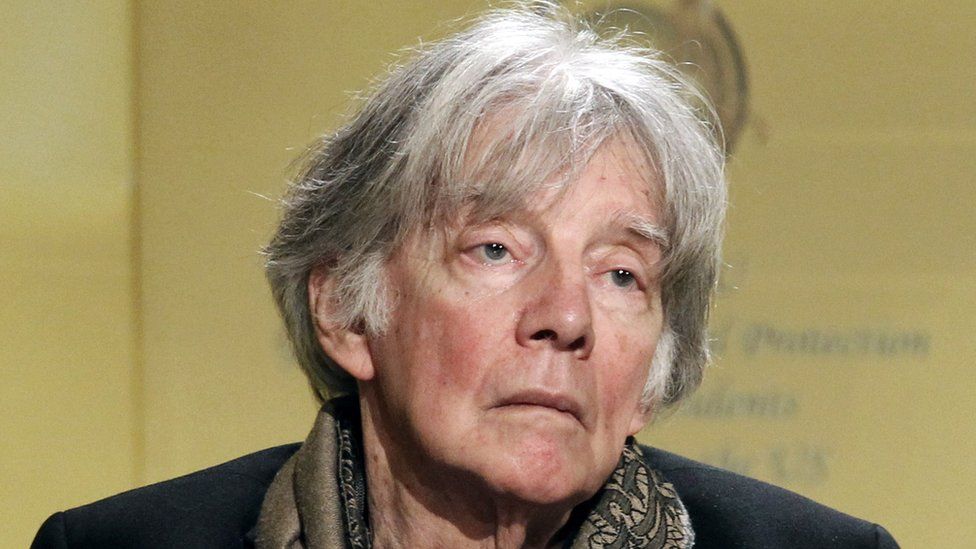French philosopher Andre Glucksmann dies at 78
- Published

Andre Glucksmann, one of the most prominent figures in French philosophy, has died aged 78.
An associate of Jean-Paul Sartre, he helped provide the intellectual underpinning for the student and worker revolts of May 1968.
He was originally seen as a Maoist but changed his views when he discovered the reality of totalitarianism.
He persuaded Sartre to back his call to help boat people fleeing the communist regime in Vietnam in 1979.
"My first and best friend is no more," his son Raphael wrote on Tuesday. "I had the incredible luck to know, laugh, debate, travel, play - do all and nothing at all with such a good and brilliant man."
Andre Glucksmann was born into a Jewish family originally from Poland and his experience of the Nazi occupation of France during World War Two inspired his early involvement with the French Communist party, as well as Maoists who advocated civil war.
In the early 1970s he condemned President Georges Pompidou's France as "fascist".
It was when he read The Gulag Archipelago by Soviet writer Alexander Solzhenitsyn in 1974 that his views dramatically changed, Le Figaro reports.
In common with other leading French thinkers such as Bernard-Henri Levy, he soon made a much-publicised break with Marxism. Together they came to be known as the "New Philosophers".
In 1977, he wrote a stinging attack on communism in Barbarism with a Human Face.
Glucksmann's thinking focused increasingly on the rights of the individual against the threat of totalitarianism, and he was prominent in promoting human rights in Bosnia, Chechnya and the Middle East, says the BBC's Hugh Schofield in Paris.
He supported Western military action against Serbia and, more controversially, Saddam Hussein's Iraq.
His move to the right was symbolised in 2007 when he supported Nicolas Sarkozy for president, our correspondent adds. However, he later broke with Mr Sarkozy over his policy towards Russia's Vladimir Putin which Glucksmann judged too friendly.
He had earlier supported Chechens during their conflict with the Russian government in the 1990s.
President Francois Hollande praised Glucksmann's constant interest in the "suffering of peoples", while Nicolas Sarkozy, now leader of the opposition Republicans, said his loss "turned a page in French thought from the second half of the 20th Century".
- Published14 December 2014
- Published3 June 2013